Exploring the Roots of Addiction
Addiction is a multifaceted and chronic condition that affects millions of individuals worldwide. Its underlying causes are complex and involve a variety of genetic, environmental, and psychological factors. This intricate interplay shapes the condition, making addiction highly individualized and challenging to treat. Understanding the mechanisms that lead to addiction is essential for developing effective prevention and treatment strategies, thereby reducing its impact on individuals and society.
The Biological Basis of Addiction
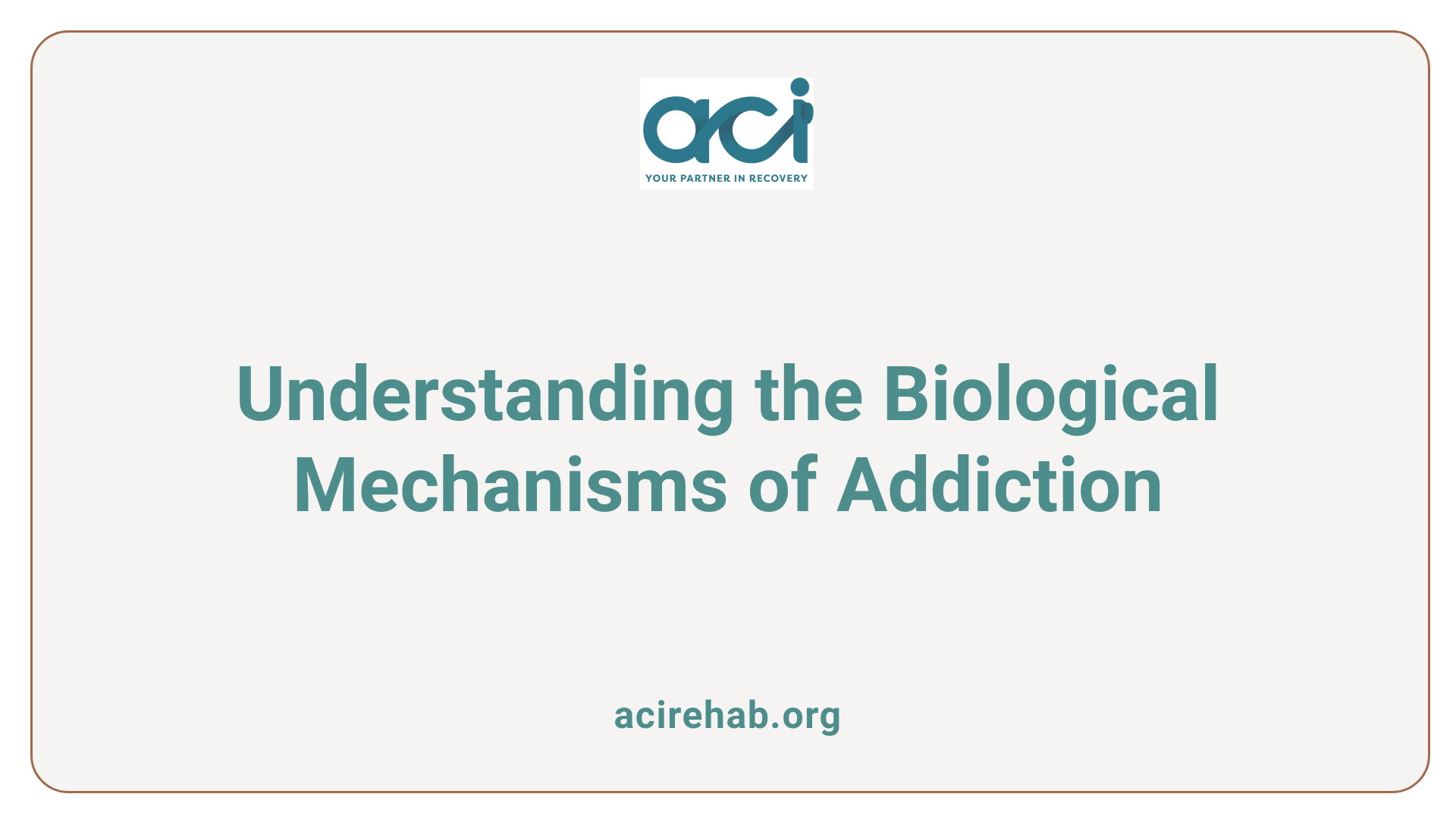
What causes addiction?
Addiction is an intricate condition influenced by a mix of genetic, environmental, and psychological factors. It manifests as a compulsive urge to engage in substance use or specific behaviors, leading to harmful consequences. The biological aspect of addiction primarily revolves around the brain’s chemistry and its reward pathways.
Genetic predisposition to addiction
Genetic factors play a significant role, accounting for 40% to 60% of an individual’s vulnerability. People with a family history of addiction are at a higher risk of developing similar issues. Inherited traits related to addiction can include certain receptor sensitivities in the brain that make individuals more prone to substance misuse.
How addiction affects brain chemistry
Addiction leads to profound changes in brain chemistry, notably affecting how the brain processes pleasure and stress. Chronic use of substances can disrupt dopamine regulation, requiring increased amounts to achieve the same pleasurable effects, known as tolerance. This implies that as the brain adjusts to substance misuse, the typical pleasurable experiences may decrease, fostering a cycle of dependency.
Role of dopamine in addiction
Dopamine is a crucial neurotransmitter involved in the brain’s reward system. When substances like drugs or alcohol are consumed, they cause significant spikes in dopamine levels, reinforcing the behavior and encouraging repeated use. This mechanism underpins the compelling urge to seek substances, even when faced with negative repercussions. The relentless pursuit of these pleasurable experiences can ultimately lead to addiction, where individuals feel compelled to continue, regardless of the harm it may cause to their health and well-being.
Recognizing the Symptoms
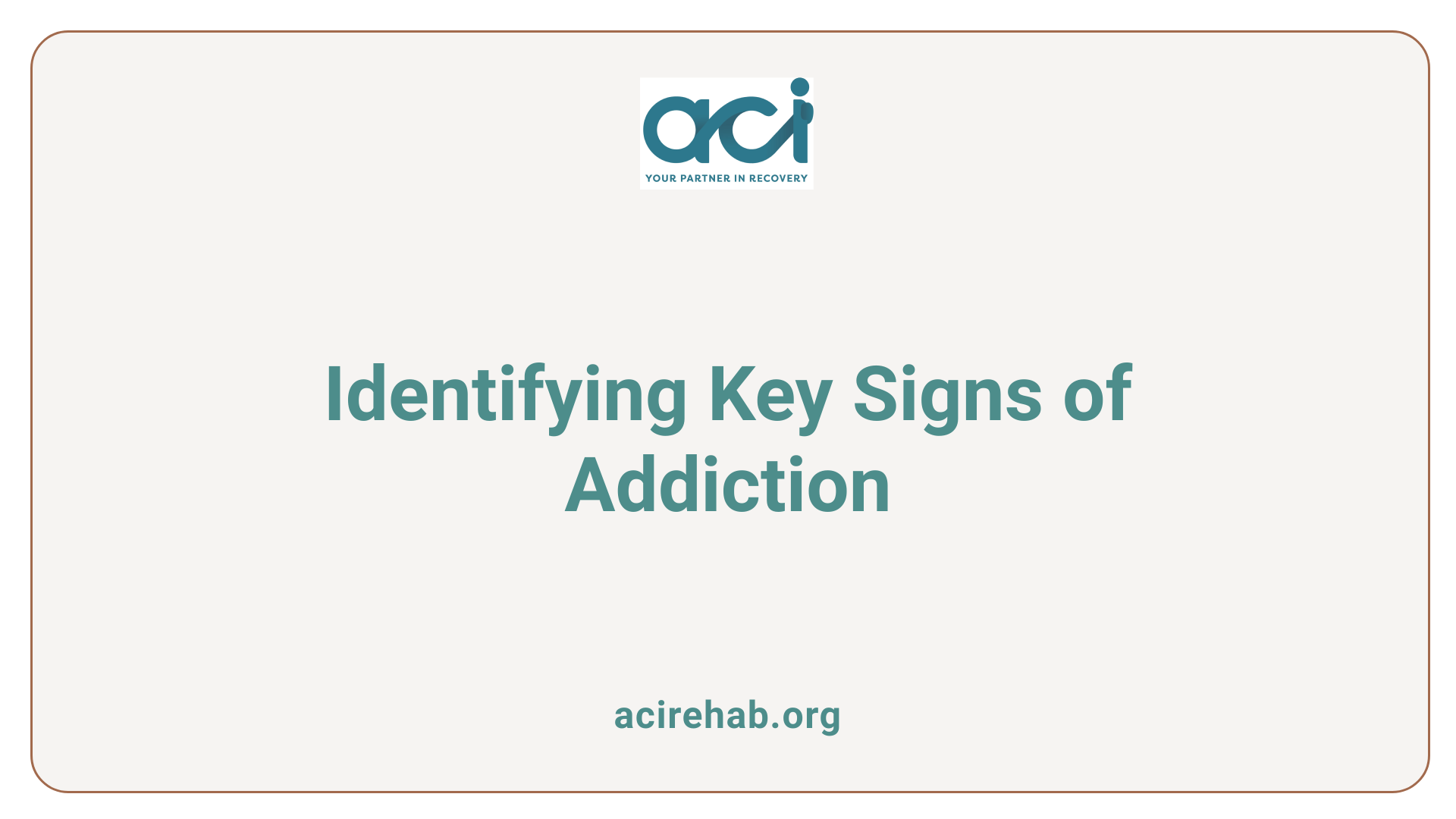
What are the symptoms of addiction?
Recognizing addiction involves identifying a range of symptoms, which can vary depending on the individual and the substance or behavior involved. Generally, individuals may exhibit an inability to stop using a substance or engaging in certain behaviors despite a strong desire to do so.
Some common signs include:
- Increased Tolerance: Needing higher amounts of a substance to achieve the same pleasurable effects.
- Intense Cravings: Experiencing overpowering urges that dominate thoughts and actions.
- Withdrawal Symptoms: Suffering from negative physical and psychological effects when not using a substance, such as anxiety or nausea.
- Neglecting Responsibilities: Ignoring personal, work, or family obligations in favor of substance use.
- Risky Behaviors: Engaging in dangerous activities after substance use, such as driving under the influence.
Effects on personal life and health
The impact of addiction extends beyond personal health, affecting relationships, finances, and overall quality of life. Individuals may face a decline in physical health due to the direct effects of substances, leading to chronic conditions, mental health issues, and a decreased ability to cope with stress.
Socially, addiction can strain relationships with family and friends and lead to isolation. Financially, the costs associated with substance use can create significant difficulties.
Recognizing these symptoms is crucial for individuals and their loved ones to seek appropriate help and begin addressing the challenges of addiction.
The Brain’s Reward System and Addiction
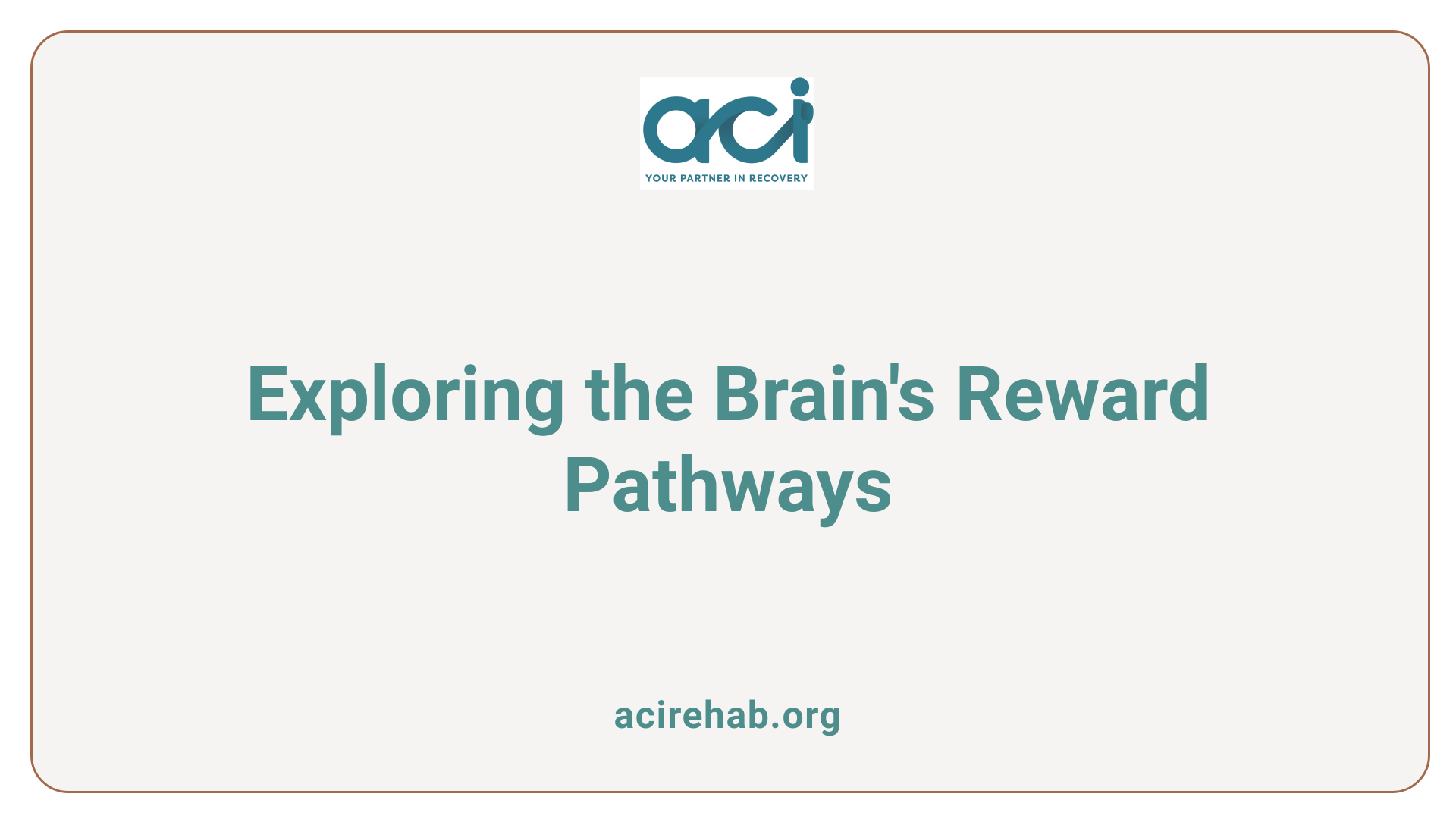
How does addiction affect the brain’s reward system?
Addiction profoundly impacts the brain’s reward system, primarily by causing excessive releases of dopamine—a neurotransmitter related to pleasure and reward. When individuals use addictive substances, they experience intense bursts of dopamine that far exceed natural rewards such as food, social interactions, or accomplishments. This results in a strong link between the substance and the feeling of pleasure, reinforcing the desire to seek out these substances repeatedly.
As use continues, the brain adapts to these unnatural dopamine levels, leading to a reduced sensitivity towards this neurotransmitter. Consequently, individuals often need to consume larger amounts of the substance to achieve the same euphoric feeling, a phenomenon known as tolerance. This increase in use creates a cycle that perpetuates the addiction, making it increasingly difficult to break free.
Additionally, this alteration in brain chemistry disrupts critical cognitive functions. Areas within the brain that govern decision-making and impulse control become impaired, as the compulsive nature of addiction overrides rational thought processes and the ability to recognize consequences.
Furthermore, addiction alters not only the pleasure pathways but also the body’s stress responses and basic motivational drives. This complex interplay makes recovery challenging, as individuals find themselves trapped in a cycle of seeking substances as their primary coping mechanism, even in the face of detrimental effects on their health and well-being.
The Impact of Addiction on Health and Relationships
What are the effects of addiction?
Addiction profoundly impacts both physical and mental health. Individuals struggling with substance use disorders often face severe health issues, including lung disease, heart problems, and increased susceptibility to infectious diseases like HIV and hepatitis C due to unsafe drug practices.
This chronic condition leads to the development of tolerance, requiring users to consume more of the substance to achieve the same effects, resulting in a dangerous cycle of increased use and substantial health risks. Moreover, withdrawal symptoms can be debilitating, pushing individuals to continue using substances to avoid discomfort.
Broader social implications
The effects of addiction extend beyond personal health, significantly affecting relationships, employment, and community dynamics. Families frequently bear the brunt of addiction-related issues, experiencing emotional and financial strain as they deal with the consequences of a loved one’s substance abuse.
Work performance is also compromised, leading to job loss or reduced productivity, which can ripple through societal systems. Furthermore, addiction often contributes to legal troubles, with individuals facing criminal charges related to drug use or erratic behavior.
Overall, addiction disrupts lives on multiple levels, necessitating integrated treatment and robust support systems to aid recovery and restore quality of life.
Types of Addiction: Substance vs. Behavioral
What are the main types of addiction?
Addiction can be broadly classified into two primary categories: substance addictions and behavioral addictions.
-
Substance Addiction
Also known as substance use disorders, these involve the compulsive use of harmful drugs. Examples include:- Alcohol
- Opioids (like prescription painkillers and heroin)
- Stimulants (such as cocaine and methamphetamine)
-
Behavioral Addiction
These pertain to compulsive behaviors often linked to emotional fulfillment or escapism. Common behavioral addictions include:- Gambling
- Eating disorders
- Gaming or internet usage
Commonalities and differences between types
Both types of addiction exhibit some similarities:
- Loss of Control: Individuals often find it challenging to regulate their behaviors or usage.
- Cravings: Both types involve intense urges that can lead to engagement in harmful practices.
- Negative Consequences: Addiction typically results in significant personal and social issues, including health-related problems and strained relationships.
Despite these commonalities, treatment approaches differ significantly:
- Substance Addictions: Often require processes like detoxification, followed by medication and behavioral therapies.
- Behavioral Addictions: Typically managed through therapies, especially cognitive behavioral therapy, which focuses on modifying disruptive thinking patterns.
Understanding the nuances between substance and behavioral addictions is crucial for effective treatment and recovery efforts.
Understanding Risk Factors and Vulnerabilities
Role of genetics and environment in addiction
Addiction is a complex disease influenced by both genetic and environmental factors. It is estimated that genetics can account for 40% to 60% of an individual’s risk for developing addiction. This genetic vulnerability can stem from specific genes associated with the brain’s reward pathways and dopamine regulation. Individuals with a family history of substance use disorders face a higher risk of experiencing similar issues.
However, genetic predisposition alone does not determine the outcome; environmental factors play a critical role as well. Social influences, especially during adolescence, are particularly impactful. Exposure to substance use within one’s peer group or family can significantly heighten the likelihood of developing addiction. Additionally, stressful environments or childhood trauma can trigger genetic predispositions, leading to increased risk.
Influence of family and peer dynamics
Family dynamics also contribute to addiction risk. Supportive family environments typically instill healthy coping mechanisms, reducing the chance of substance misuse. Conversely, dysfunction, lack of supervision, or parental substance use can increase vulnerability. Peer pressure is a powerful influence during youth, where associations with substance-using peers can lead to experimentation and potentially addiction.
In summary, the interplay between genetic and environmental factors underscores the complexity of addiction. Recognizing and addressing these risk factors is essential for effective prevention and treatment strategies.
The Development of Drug Addiction in the Brain
How does drug addiction develop in the brain?
Drug addiction unfolds through intricate changes in neural pathways and neurotransmitter systems, particularly in regions of the brain that regulate pleasure, reward, and decision-making. When an individual consumes drugs, these substances markedly increase levels of neurotransmitters such as dopamine, producing intense feelings of euphoria. This initial pleasurable response can lead to compulsive use as the individual seeks to replicate those rewarding sensations.
Over time, the brain adapts to these frequent spikes in dopamine. This adaptation, characterized by reduced sensitivity to dopamine, results in the phenomenon known as tolerance, where increasingly larger doses of the drug are needed to achieve the desired effects. Subsequently, this adjustment can lead to physical dependence—where the absence of the substance provokes withdrawal symptoms that can be distressing and difficult to endure.
Furthermore, the risk of developing an addiction is also influenced by environmental factors like stress and peer pressure, alongside genetic predispositions that can alter an individual’s susceptibility to addiction. This complex interplay of biological changes and external influences can complicate the trajectory of substance use, making recovery a challenging process.
Mental Health and Addiction: A Bidirectional Relationship
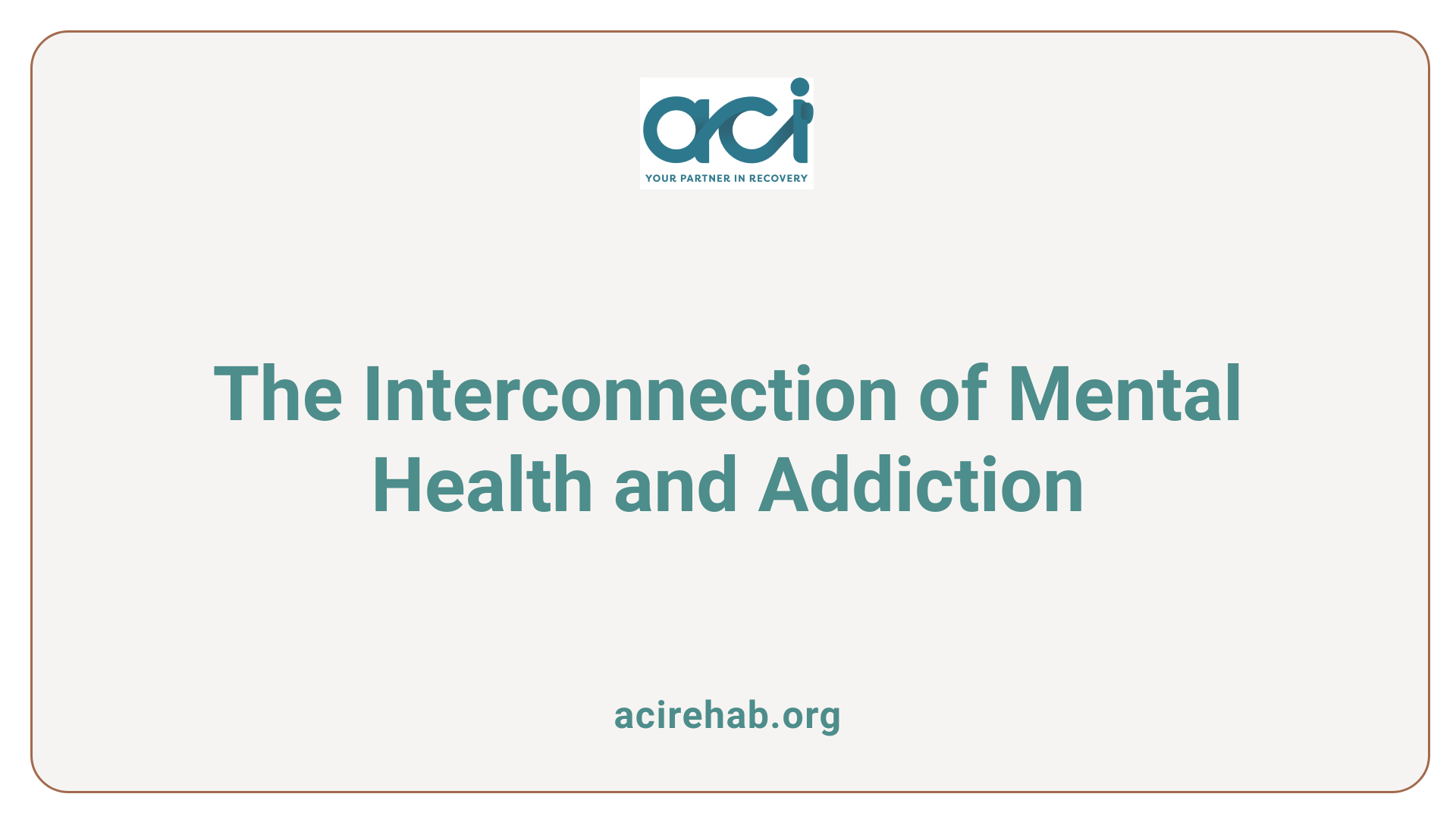
Co-occurring disorders and self-medication
Addiction and mental health disorders frequently co-exist, leading to a complex relationship where each condition exacerbates the other. Approximately 50% of individuals with a substance use disorder (SUD) also suffer from mental health issues such as anxiety, depression, or PTSD. Many individuals turn to substances as a form of self-medication to cope with their mental distress—an action that, while initially providing temporary relief, often leads to further dependency and worsened mental health.
Impact on treatment and recovery
The co-occurrence of mental health disorders and addiction complicates treatment significantly. Treatment professionals must adopt integrated approaches that address both conditions simultaneously. Without appropriate interventions that consider this bidirectional relationship, individuals are at a risk of relapse or inadequate recovery. Support systems that provide psychological therapy in conjunction with recovery programs are crucial for successful outcomes. By recognizing the intertwined nature of addiction and mental health, comprehensive treatment can better address the root causes of both issues, thereby enhancing recovery prospects.
Strategies for Prevention and Treatment
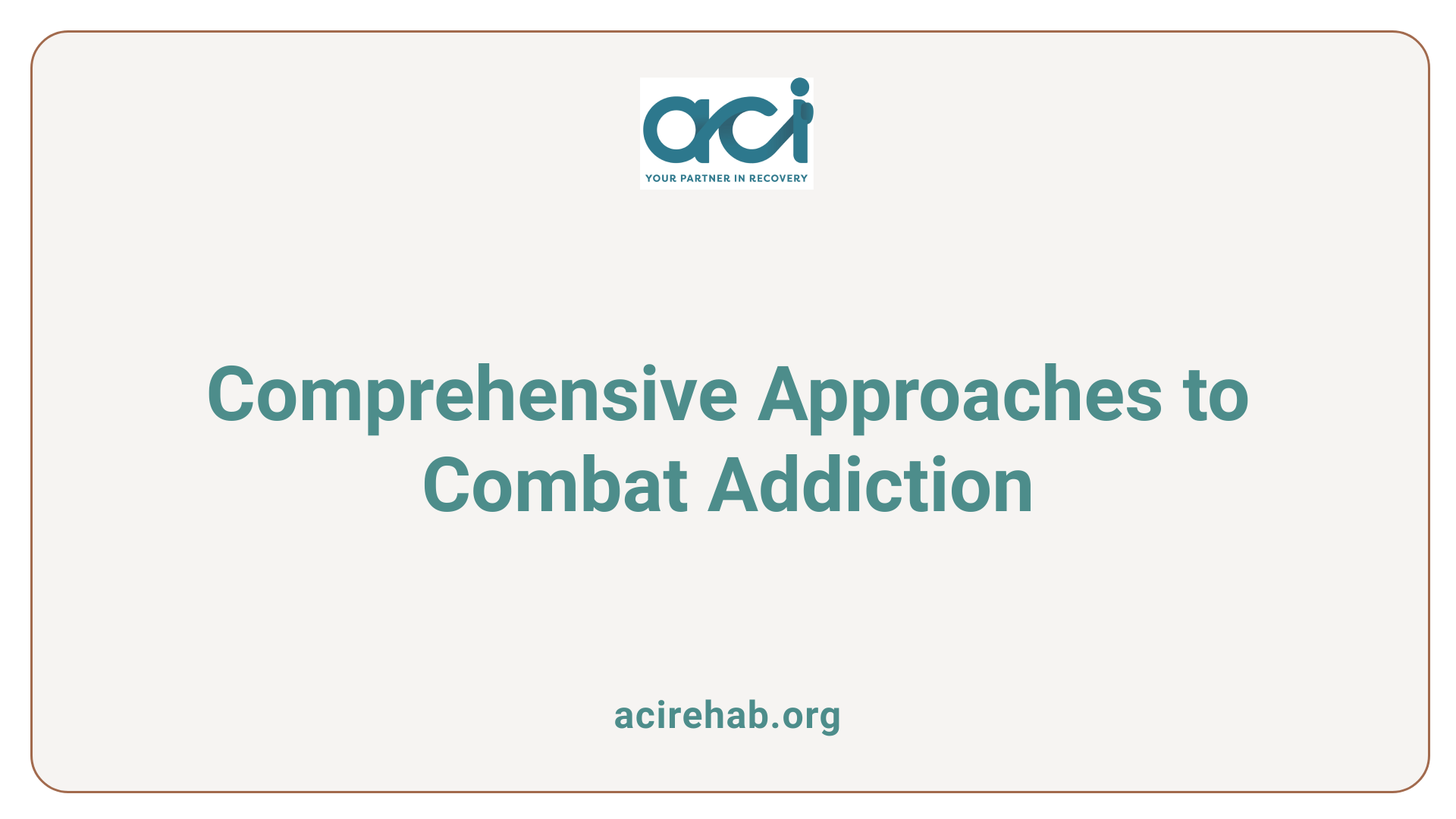
Comprehensive approaches to addiction treatment
Effectively addressing addiction requires a multifaceted strategy that combines various treatment modalities. This includes medication-assisted therapies, behavioral counseling, and psychosocial support.
- Medication-Assisted Treatment (MAT): MAT uses medications like methadone or buprenorphine alongside counseling to help reduce cravings and withdrawal symptoms, particularly in opioid use disorders.
- Behavioral Therapies: These involve counseling techniques such as Cognitive Behavioral Therapy (CBT) which helps individuals recognize and change their thought patterns and behaviors associated with substance use.
- Holistic Approaches: Incorporating mind-body therapies like yoga and mindfulness can enhance recovery by addressing emotional and physical well-being.
Importance of social support and community programs
Strong support systems play an essential role in overcoming addiction.
- Community Engagement: Participation in group therapy and support groups such as Alcoholics Anonymous (AA) fosters a sense of belonging and accountability, which can be crucial for recovery.
- Family Involvement: Engaging family members in therapy can improve communication and understanding, thereby strengthening familial bonds and support.
- Education and Awareness: Community programs that educate about addiction can reduce stigma and promote healthier lifestyle choices, thereby preventing substance misuse.
Table of Treatment Strategies
| Treatment Type | Description | Benefits |
|---|---|---|
| Medication-Assisted Treatment | Utilizes medications to ease withdrawal | Reduces cravings, supports withdrawal management |
| Behavioral Therapies | Targets thought-behavior patterns | Improves coping strategies, reduces relapse risk |
| Community Programs | Foster group support and education | Creates a supportive environment, combats isolation |
By employing these comprehensive treatment approaches and fostering strong community ties, we can significantly enhance the chances of successful recovery for individuals facing addiction.
Complexities of Drug Addiction and Solutions
What are the complexities surrounding drug addiction problems and potential solutions?
Drug addiction is a multifaceted issue that impacts not only the individuals affected but also their families and broader society. One of the major complexities relates to the biochemical alterations that addiction inflicts on the brain. Drugs can significantly disrupt normal brain function, particularly affecting self-control, decision-making, and emotional regulation. This makes it exceedingly difficult for individuals to break free from addiction despite their will.
Moreover, addiction’s onset is influenced by a variety of factors:
- Genetics: About 40% to 60% of addiction vulnerability can be attributed to genetic predispositions. Family history of substance use disorders amplifies this risk.
- Environmental Influences: Factors such as peer pressure, exposure to substance use in childhood, and unstable family environments increase the likelihood of developing substance use disorders (SUD).
- Early Drug Exposure: The earlier individuals begin using drugs, the more likely they are to form addictive patterns, especially during their adolescent years when brain development is still ongoing.
To address addiction effectively, a comprehensive approach is necessary. Management strategies often include:
- Detoxification: Gradually ridding the body of substances under medical supervision to handle withdrawal symptoms safely.
- Counseling and Behavioral Therapies: These are critical in addressing the psychological aspects of addiction and helping individuals develop healthier coping strategies.
- Support Systems: Engaging family and community resources to provide ongoing support during recovery is essential.
Preventive Strategies
Prevention efforts are equally vital. Community education and effective parenting programs can promote resilience and healthy coping mechanisms for youth, reducing the likelihood of substance misuse as they grow.
Overall, recovery is achievable with a commitment to treatment, strong social support, and a personalized approach to each individual’s needs, although this journey may involve managing challenges such as relapse and coping with withdrawal symptoms.
Towards a Deeper Understanding of Addiction
Recognizing and understanding the complex roots and characteristics of addiction is vital to combating this pervasive condition. By acknowledging the interplay of genetic, environmental, and psychological factors, we can implement more effective prevention strategies and treatment interventions. Continued research and comprehensive education are essential in fostering awareness and reducing stigma, paving the way for more compassionate and targeted recovery efforts. As we advance in our understanding of addiction, we empower individuals and communities to address this issue holistically, transforming lives affected by addiction and promoting long-term well-being.
References
- Addiction: What It Is, Causes, Symptoms, Types & Treatment
- Causes of Addiction | Psychology Today
- 11 Causes of Addiction – All Points North
- How an Addicted Brain Works > News > Yale Medicine
- Drug addiction (substance use disorder) – Symptoms and causes
- Biology of Addiction | NIH News in Health
- Substance Use Disorder | Johns Hopkins Medicine

